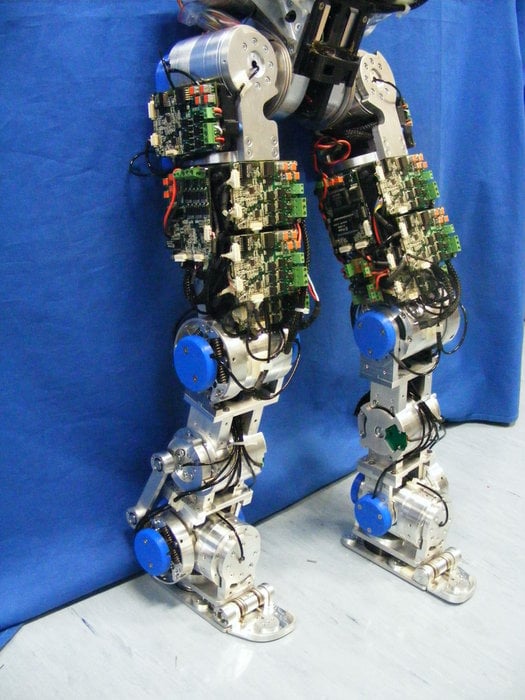www.industryemea.com
25
'11
Written on Modified on
Learning to walk faster with high performance modelling
A project using MapleSim physical modelling software, at the University of Manchester, is helping to perfect the process of humanoid walking in robots. One of the challenges facing the Manchester team, lead by Dr Martin Brown and Dr Gustavo Medrano-Cerda, is visualising experiments quickly and effectively, to avoid slowing down the process and to ensure that experimentation is valid and relevant.

The new centre at Manchester, the Centre for Interdisciplinary Computational and Dynamic Analysis (CICIDA), has been working with Professor Darwin Caldwell at the Italian Institute of Technology, Genova, who has been developing a novel compliant humanoid robot (CCub) based on the previously developed humanoid robot iCub at IIT.
Part of CICIDA's work looks at walking characteristics and other locomotive actions using a hybrid model. The model uses spring/dampers to simulate ground reaction force, actuator dynamics and compliant elements to capture the robot’s full dynamic response.
“The ability to visualise in MapleSim, without having to write our own programs, has been invaluable,” says PhD student Houman Dallali. “What's more, we can directly generate C++ code to interface with the hardware and speed up the controller implementation/debugging process.”
With a comprehensive and advanced library of models online – in one place – Mr Dallali has been able to construct complex simulations easily using 'drag and drop', then edit existing routines with little effort due to MapleSim's intuitive interface. The inclusion of linearisation techniques in the MapleSim offering is also important for robotic modelling. “We are building models faster and completing experiments with better data thanks to MapleSim's accuracy and kinematics capabilities,” Mr Dallali continues, “whilst the ever-present support from the team at Adept ensures seamless transition from one stage to the next.”
The speed and success of the MapleSim-aided research means that the CICIDA team will quickly move on to projects for dynamic walking with full body control and extended range of gaits. Dr Martin Brown and his PhD student Onder Tutsoy are working on 'reinforcement learning' for humanoid robots as well as ‘iterative learning' techniques. “In the future, we will be adding logic and learning approaches to our code and looking to develop applications from the research, such as better prosthetics and walking aids” says Mr Dallali.

